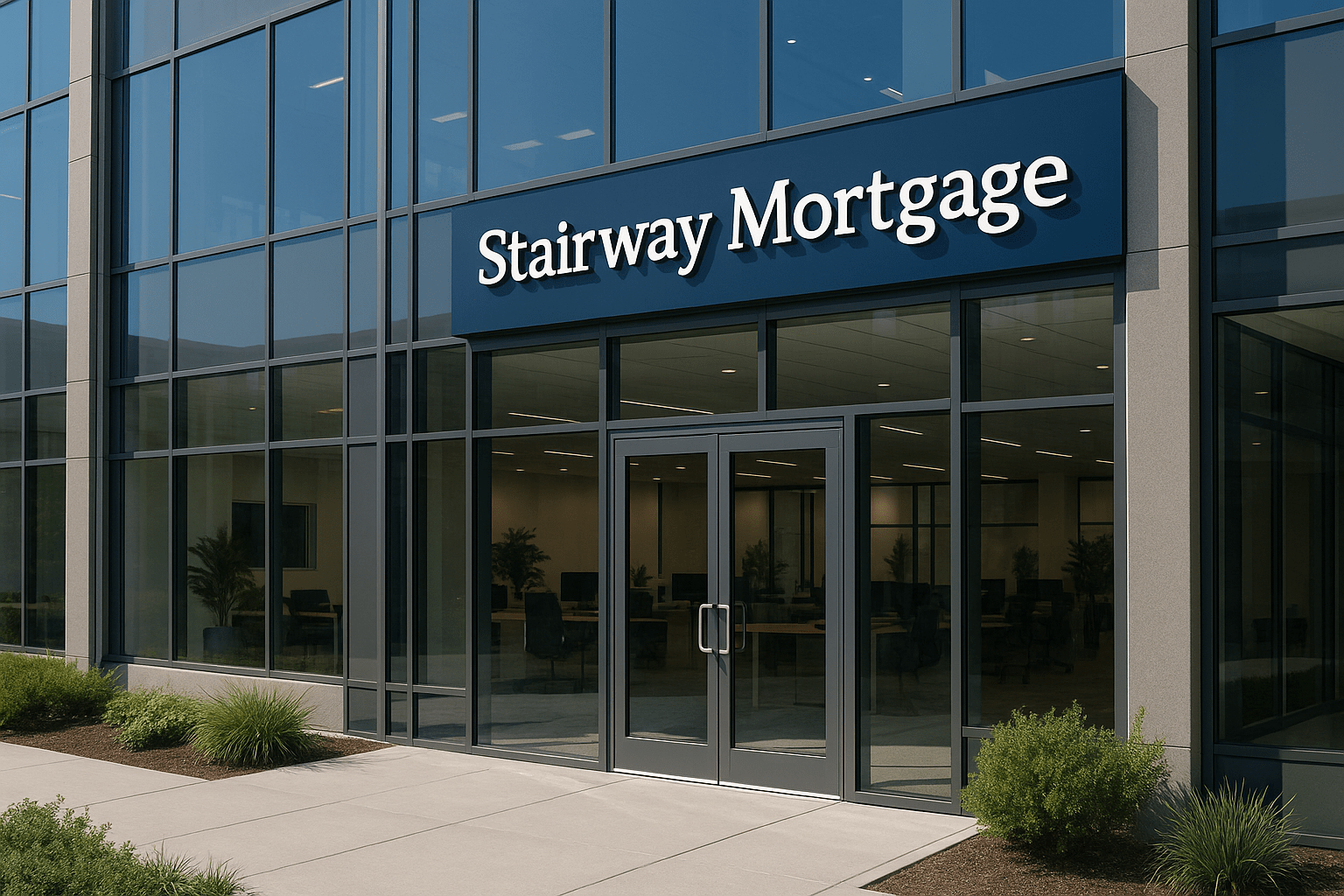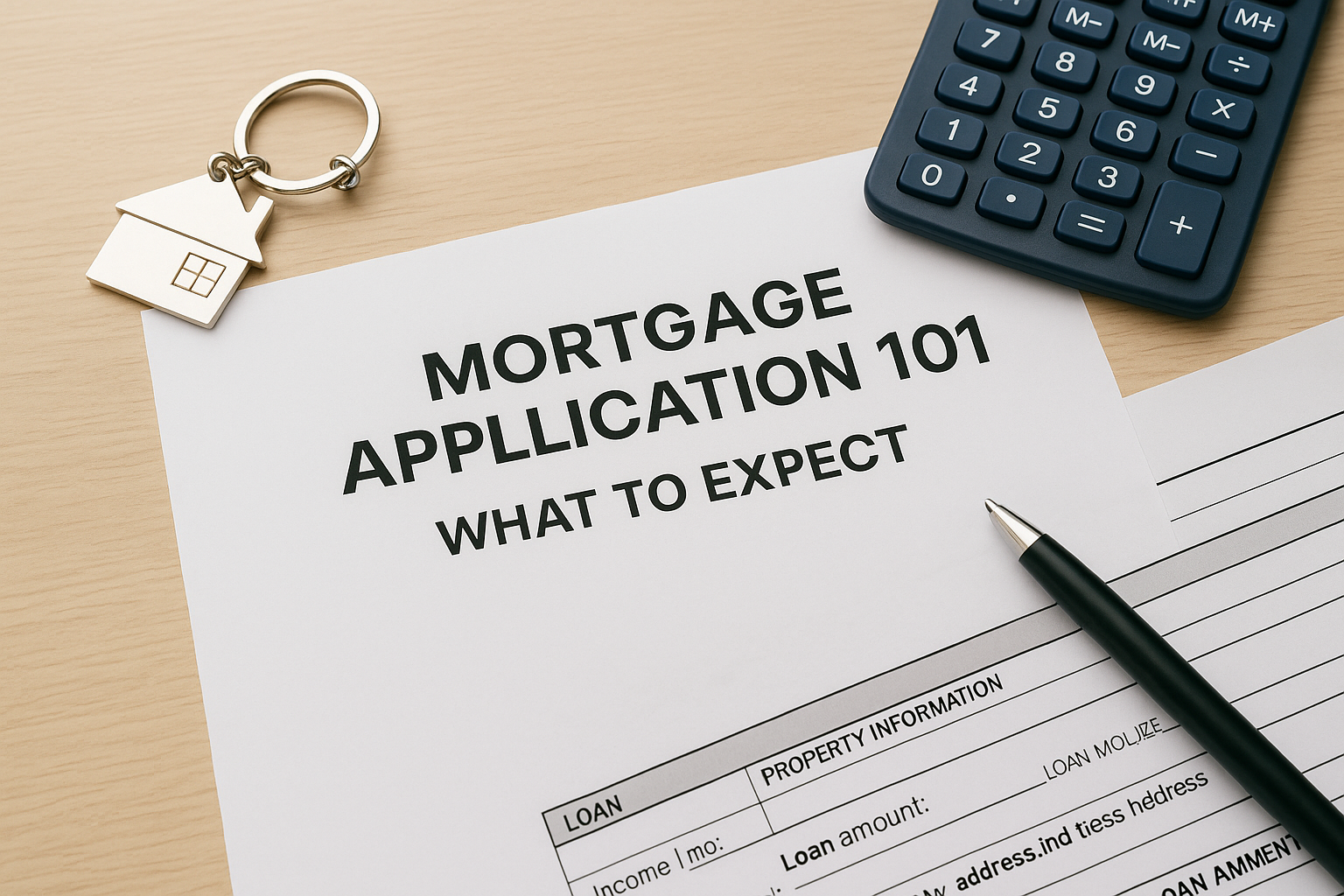FHA vs Conventional Loan: Your Decision Framework
FHA vs Conventional Loan: Your Decision Framework

When you’re buying your first home, the loan choice determines everything: how much down payment you need, how quickly you can close, what your monthly payment looks like, and your long-term flexibility. FHA versus conventional isn’t just a technical detail—it’s the foundation of your entire strategy.
Here’s what makes choosing between FHA and conventional loans the most important decision you’ll make:
In this guide, you’ll discover:
- How FHA and conventional loans differ in down payment requirements, credit standards, and monthly costs (according to HUD FHA requirements)
- Which loan gets you into a home faster based on your specific financial situation
- The real math on mortgage insurance and how it affects your long-term costs (following CFPB mortgage guidelines)
- Decision-making framework for choosing the right loan for your situation
- Why conventional might be better even with lower credit, and why FHA might be smarter even with substantial savings (based on Fannie Mae lending standards)
The difference between choosing FHA versus conventional could mean thousands in monthly payments, tens of thousands over the life of the loan, and dramatically different paths to building equity and wealth.
Confused about which loan fits your situation? Schedule a call to get a personalized comparison based on your actual numbers.
What Is the Difference Between FHA and Conventional Loans?
FHA and conventional loans differ fundamentally in who backs them, who qualifies, and how they work long-term.
FHA loans are government-backed mortgages insured by the Federal Housing Administration (FHA), part of HUD. Government insurance makes lenders willing to accept lower credit scores and smaller down payments because their risk is reduced. FHA follows strict HUD guidelines for qualification and property standards.
Conventional loans have no government backing. Private lenders fund them and take full risk. To manage that risk, they typically require higher credit scores and larger down payments. Conventional loans follow Fannie Mae and Freddie Mac guidelines.
The key differences:
Backing: FHA = government-insured, Conventional = private lender risk. Down payment: FHA minimum typically lower than conventional. Credit requirements: FHA accepts lower scores. Mortgage insurance: FHA requires insurance for life of loan in most cases, conventional allows removal at certain equity percentage. Property standards: FHA stricter on property condition than conventional. Loan limits: Both have limits but differ by program and location.
These differences determine which loan matches your situation.
Down Payment Requirements: How Much Do You Actually Need?
Down payment requirements separate first-time buyers who can purchase now from those who need more time to save.
FHA Down Payment: Lower but Not Zero
FHA loans require a minimum down payment that’s accessible for many first-time buyers. With a credit score meeting FHA standards, you need to save less than conventional minimums typically require.
The reality: Even minimal down payments require thousands in down payment plus closing costs. On a home purchase, you’re looking at substantial upfront cash even with FHA.
Down payment sources: FHA allows gift funds from family for entire down payment. You can also use down payment assistance programs, grants, and employer programs. See our guide on gift money for down payment for how family help works.
Use the FHA loan calculator to see exact down payment and total cash needed for homes in your price range.
Conventional Down Payment: More Flexible Than You Think
Conventional loans often require minimal down payments for qualified first-time buyers. Many people believe conventional loans require substantial down payments, but that’s outdated. Conventional programs exist for lower down payments.
First-time buyer advantage: Special conventional programs designed for first-time buyers allow minimal down payments with appropriate mortgage insurance.
The tradeoff: Lower down payment means higher monthly payment due to mortgage insurance. But it gets you in the door faster.
Down payment sources: Conventional also allows gift funds, but requirements are slightly different than FHA. Some conventional programs restrict down payment to buyer’s own funds.
Use the conventional loan calculator to compare scenarios.
Which Gets You In Faster?
If you have minimal savings: FHA typically wins. The lower minimum plus more flexible gift fund rules mean you need less cash in hand.
If you have moderate savings: Either could work. Run both scenarios. Sometimes conventional with slightly higher down payment has lower monthly payment due to insurance differences.
If you have substantial savings: Conventional usually wins long-term because mortgage insurance eventually drops off.
The down payment difference alone doesn’t determine the winner. You must look at the complete picture including credit requirements and monthly costs.
[IMAGE 2 PLACEHOLDER] Description: Financial advisor showing first-time buyers comparison on tablet screen with two columns showing FHA vs conventional down payment requirements, couple looking attentive and engaged, modern mortgage office with natural light, professional consultation atmosphere
Credit Score Requirements: Who Qualifies for What?
Credit requirements determine if you can get approved at all, regardless of down payment savings.
FHA Credit Standards: More Forgiving
FHA loans are known for accepting lower credit scores than conventional loans typically require. The minimum FHA credit score varies by lender, but FHA guidelines allow approval with lower scores than conventional standards.
The reality: Just because FHA allows lower scores doesn’t mean every lender will go that low. Many FHA lenders have overlays—additional requirements beyond basic FHA guidelines—that require higher scores.
What FHA wants to see: Recent positive payment history matters more than old negatives. If you had credit problems years ago but have been perfect recently, FHA may approve you while conventional won’t.
Recent credit events: FHA has specific waiting periods after bankruptcy, foreclosure, or short sale. These are typically shorter than conventional waiting periods.
If you’re working on improving credit, see our credit improvement guide for strategies that work for mortgage approval specifically.
Conventional Credit Standards: Higher But Not Impossible
Conventional loans typically require credit scores in a higher range than FHA minimums. However, conventional has more flexibility in how they evaluate credit.
The advantage: Conventional underwriting can be more forgiving of certain credit situations if compensating factors exist. High income, large down payment, substantial reserves—these can offset borderline credit.
What conventional wants: Overall credit profile matters more than just score. Someone with slightly lower score but perfect payment history and low debt may get approved over someone with higher score but maxed credit cards and recent late payments.
Recent credit events: Conventional waiting periods after bankruptcy, foreclosure, or short sale are longer than FHA. If you’ve had major credit problems recently, FHA is likely your only option.
Which Gets You In Faster?
If your credit score is below conventional minimums: FHA is your path. Period. Conventional won’t approve you. Focus on FHA qualification.
If your score meets conventional minimums but barely: Still consider FHA. The slightly lower standards might mean less documentation hassle and faster approval.
If your score is well above conventional minimums: Conventional likely offers better terms and lower costs long-term. The higher score means you qualify for best conventional pricing.
If you have recent major credit problems: FHA waiting periods are shorter. You’ll get approved for FHA before conventional lets you back in.
Credit and down payment together determine your options. Some borrowers qualify for both—then monthly costs become the deciding factor.
Monthly Costs: The Real Difference Between FHA and Conventional
Monthly payment determines affordability. The loan with lower upfront costs might have higher monthly costs—or vice versa. You must understand the complete picture.
Understanding Mortgage Insurance
Both FHA and conventional require mortgage insurance when putting down less than certain thresholds. But how it works differs dramatically.
FHA mortgage insurance:
FHA charges two types. Upfront mortgage insurance premium (UFMIP), typically financed into loan. Then annual mortgage insurance premium (MIP) divided monthly.
The permanent problem: FHA mortgage insurance typically lasts for life of loan with minimal down payment. Never drops off. Only way to remove is refinancing to conventional once you have sufficient equity.
FHA with larger down payments: If you put down more than a threshold, FHA allows MIP cancellation after set years. Few first-time buyers put down that much.
Conventional mortgage insurance:
Conventional requires private mortgage insurance (PMI) with less than conventional threshold down. But PMI automatically cancels once you reach certain equity percentage through payments and appreciation.
The removability advantage: PMI dropping off after several years saves significant money monthly. Your payment decreases without refinancing.
PMI flexibility: Conventional has multiple PMI options—borrower-paid monthly, lender-paid (higher rate), or single-premium paid at closing. FHA has less flexibility.
Use the FHA loan calculator and conventional loan calculator to see exact monthly costs including insurance.
Interest Rates: Usually Similar, Sometimes Different
Interest rates on FHA versus conventional are often similar for borrowers who qualify for both. However, differences exist:
FHA rates: Tend to be competitive, especially for lower credit scores. Because FHA is government-insured, lenders price risk differently.
Conventional rates: Vary more based on credit score and down payment. Higher scores get meaningfully better rates. Lower scores pay premium pricing.
The comparison: Someone with excellent credit and substantial down payment usually gets better conventional rate. Someone with lower credit or minimal down payment might get better FHA rate.
Market conditions matter: Sometimes FHA rates are more attractive, sometimes conventional rates are better. This changes based on mortgage market conditions.
Property Taxes and Insurance: Identical
Property taxes and homeowners insurance are the same regardless of loan type. These are based on the property and location, not your loan program.
Total Monthly Payment Comparison
Let’s look at real scenarios comparing monthly costs:
Scenario 1: Minimal down payment, good credit
- Purchase price: Similar home in your market
- Down payment: Minimal for both programs
- Credit score: Meets both FHA and conventional standards
FHA monthly payment: Principal + Interest + FHA MIP + Taxes + Insurance Conventional monthly payment: Principal + Interest + PMI + Taxes + Insurance
Run your actual numbers. Often FHA has slightly higher monthly payment due to mortgage insurance structure, but not always.
Scenario 2: Several years into loan
- Same purchase, but comparing costs in year 5
- Both borrowers have built equity through payments and appreciation
FHA monthly payment: Identical to year 1 (MIP never drops) Conventional monthly payment: Lower than year 1 (PMI cancelled after hitting equity threshold)
This is where conventional pulls ahead long-term if you plan to keep the home.
Scenario 3: Lower credit score
- Same purchase but credit score below conventional comfort zone
- Borrower qualifies for FHA but conventional pricing would be terrible
FHA monthly payment: Standard FHA pricing Conventional monthly payment: High interest rate premium makes it more expensive than FHA
In this case, FHA wins on monthly cost despite mortgage insurance.
Which Gets You In Faster Based on Monthly Cost?
If you need the absolutely lowest monthly payment right now: Calculate both. Sometimes FHA, sometimes conventional, depending on your specific numbers.
If you plan to keep the home long-term: Conventional usually wins because mortgage insurance drops off.
If you’ll refinance or move within a few years: FHA permanent insurance matters less. You’re refinancing before it becomes expensive anyway.
If your credit is borderline: FHA probably has lower monthly cost due to conventional risk pricing.
The only way to know for certain is running both scenarios with real numbers. Never assume one is automatically better.
[IMAGE 3 PLACEHOLDER] Description: First-time home buyers at kitchen table with laptop showing monthly payment comparison spreadsheet with FHA and conventional columns side by side, calculator and budget documents visible, couple discussing numbers, home environment with natural window light, thoughtful decision-making moment
Property Standards: FHA Is Pickier Than You Think
Property condition requirements differ between FHA and conventional—this affects which homes you can buy and how fast you close.
FHA Property Requirements
FHA has strict property condition standards. Property must meet FHA minimum property standards (MPS) or loan won’t close.
What FHA cares about: Safety (no exposed wiring, structural issues, major hazards). Soundness (good roof, solid foundation, no major deferred maintenance). Security (secure against unauthorized entry).
Minor issues that kill FHA deals: Peeling paint on pre-1978 homes (lead concern). Missing handrails on stairs. Cracked windows. Old roof needing replacement. Broken systems (HVAC, water heater).
The inspection problem: FHA requires appraisal, appraiser notes condition issues. Issues must be fixed before closing. Sellers often refuse repairs, killing deal.
Fixer-upper limitation: Can’t buy properties needing significant work with standard FHA. Must be move-in ready. For fixer-uppers, need FHA 203k loan combining purchase and renovation.
Conventional Property Requirements
Conventional cares about condition but standards less strict than FHA. Property must be livable and safe, but no detailed FHA-style checklist.
What conventional focuses on: Property must have value and be marketable. Major structural or safety problems must be addressed.
What conventional overlooks: Minor cosmetic issues stopping FHA often don’t stop conventional. Peeling paint? Usually fine if not lead-paint era. Missing handrail? Might not matter.
The advantage: More properties qualify for conventional than FHA. Minor-work properties often approved by conventional, rejected by FHA.
Which Gets You In Faster?
Perfect move-in ready property: Both work fine. Property has minor issues: Conventional closes faster—no seller repair negotiations. Want fixer-upper: Neither standard program works—need renovation loan. Competitive market: Sellers prefer conventional over FHA fearing property condition issues.
Loan Limits and Property Type Flexibility
Both FHA and conventional have maximum loan amounts by county. They differ in handling different property types.
FHA Loan Limits
FHA sets maximum amounts by county based on local housing costs. In most counties, sufficient for median-priced homes. In expensive markets, FHA limits might restrict you.
Multi-unit advantage: Buy up to 4-unit property with FHA, live in one unit, rent others. House hacking strategy that builds wealth. Conventional allows this too, but FHA makes it accessible with lower down payment. See our house hacking guide.
Condo approval: FHA has specific condo requirements. Not all condos are FHA-approved. Verify before offers. Conventional more flexible with condos.
Conventional Loan Limits
Conventional conforming limits set by FHFA based on county. Above these limits, need jumbo loan with different requirements.
Flexibility advantage: Conventional limits higher than FHA in many counties. Expensive market? Conventional might allow higher purchase price.
Which Gets You In Faster?
Expensive market near limits: Check both limits for your county. Often conventional higher. Multi-unit for house hacking: Both work, FHA more accessible. Buying condo: Verify FHA approval. If not approved, conventional is option.
The Decision Framework: Which Loan Should You Choose?
Now that you understand all the differences, here’s how to actually make the decision.
Choose FHA If:
Your credit score is below conventional minimums. If you don’t qualify for conventional, FHA is your path to homeownership. Don’t overthink it—take FHA and refinance to conventional later once credit improves.
You have minimal savings for down payment. FHA’s lower minimum gets you in the door faster. Time in the market building equity matters more than perfect loan program.
You’re using substantial gift funds. FHA has more flexible gift fund rules. If family is helping with entire down payment, FHA makes it easier.
You had recent major credit event. If you had bankruptcy, foreclosure, or short sale in recent years, FHA waiting periods are shorter. You’ll qualify for FHA before conventional.
You want multi-unit property with minimal down payment. FHA lets you house hack with lower down payment than conventional requires for multi-unit.
Choose Conventional If:
Your credit score is well above minimums. Higher credit gets meaningfully better conventional pricing. The rate advantage plus removable mortgage insurance makes conventional cheaper long-term.
You have larger down payment saved. Conventional with higher down payment avoids or minimizes mortgage insurance entirely. FHA charges insurance regardless of down payment (unless you put down 10%+).
You plan to keep the home long-term. Conventional mortgage insurance drops off. FHA insurance is permanent. Over 10-15 years, conventional saves significant money.
The property has minor condition issues. Conventional is more forgiving than FHA property standards. If sellers won’t make repairs, conventional closes while FHA doesn’t.
You’re buying condo that’s not FHA-approved. Many condos don’t meet FHA condo approval requirements. Conventional is more flexible.
The “Calculate Both” Scenarios
Many first-time buyers qualify for both FHA and conventional. When that’s you, run both scenarios completely:
Get pre-approved for both programs. See real interest rates, real monthly payments, real closing costs. Compare the actual offers, not theoretical differences.
Consider your timeline. Are you refinancing in 2-3 years anyway? Then FHA permanent insurance matters less. Staying 10+ years? Conventional removable insurance matters more.
Think about property plans. If you’re buying home you’ll turn into rental later, conventional makes that easier. FHA has restrictions on converting to non-owner occupied.
Ask yourself: “What gets me into homeownership fastest with payments I can afford comfortably?” Sometimes that’s FHA’s lower barrier to entry. Sometimes it’s conventional’s lower monthly payment.
Use the calculators to see real numbers: FHA loan calculator, conventional loan calculator, rental property calculator if house hacking.
Don’t Forget VA and USDA
If you’re military or veteran, VA loans beat both FHA and conventional—zero down payment, no mortgage insurance ever, competitive rates. Don’t default to FHA if you have VA benefits.
If you’re buying in eligible rural or suburban area, USDA loans offer zero down payment and reasonable mortgage insurance. Check USDA eligibility for your target property location.
The “FHA versus conventional” decision assumes neither VA nor USDA applies to your situation.
[IMAGE 4 PLACEHOLDER] Description: First-time home buyer couple in their late 20s holding “SOLD” sign in front of their new home, both smiling confidently, modern suburban house in background, successful home purchase milestone, bright sunny day, authentic achievement moment
How Stairway Mortgage Helps You Choose the Right Loan
You understand the differences between FHA and conventional. But applying that knowledge to your specific situation—your credit, your savings, your target property—requires expertise.
We run both scenarios with real numbers. Not generic examples from the internet. Your actual credit score, your actual down payment, your actual target purchase price. We show you real monthly payments for both FHA and conventional so you can make informed decision.
We know when to push for one over the other. Sometimes borrowers fixate on FHA because they think it’s “easier” when conventional would save them significant money. Sometimes they want conventional for prestige when FHA is smarter strategy. We tell you the truth based on your numbers.
We handle the complexity of approval. FHA has different documentation requirements than conventional. Different property standards. Different underwriting guidelines. We know both programs inside and out and position your application for fastest approval.
We help you see beyond first loan to the next move. Maybe FHA gets you in the door now, but we’re already planning conventional refinance in 2 years when credit improves and equity builds. Or maybe conventional now sets you up for HELOC later to buy second property. We think long-term about your wealth building.
The FHA versus conventional decision determines your path to homeownership. Make it based on facts and numbers, not assumptions and myths.
Ready to see which loan gets you into a home faster? Schedule a call to run your actual numbers for both FHA and conventional options.
Ready to Choose Between FHA and Conventional?
You understand the differences. You know the decision framework. Time to take action based on your specific situation.
If you don’t know your credit score: Pull your credit report today at AnnualCreditReport.com. You can’t choose the right loan until you know your credit standing. If your score is below conventional minimums, FHA is your path. If you’re above, calculate both.
If you’re still saving down payment: Use our down payment savings guide to accelerate timeline. The faster you save, the faster you buy—regardless of FHA or conventional.
If you’re ready to get pre-approved: Apply for both FHA and conventional pre-approval. See which programs you qualify for and compare real offers. Use FHA loan calculator and conventional loan calculator first to understand what to expect.
If you found your target property: Run both FHA and conventional scenarios for that specific purchase price. Consider property condition—will it pass FHA standards or is conventional safer? Factor in seller preferences in competitive market.
If you’re considering house hacking: Explore multi-unit properties with FHA financing. Read our house hacking guide to understand strategy completely. Use the rental property calculator to model cash flow.
The right loan choice gets you into homeownership faster with sustainable payments. Wrong choice creates unnecessary obstacles or costs you thousands over time.
Frequently Asked Questions
Can I switch from FHA to conventional after getting pre-approved?
Yes, you can switch loan programs anytime before closing. Many buyers get pre-approved for both FHA and conventional, then choose based on the actual property they find and final rate quotes. Some buyers even start FHA application but switch to conventional mid-process when they realize conventional offers better terms for their situation.
Is it easier to get approved for FHA or conventional?
Generally FHA is easier to get approved for if you have lower credit score or minimal down payment. FHA guidelines are more forgiving for credit and allow lower scores than conventional typically requires. However, if you have strong credit and healthy savings, conventional approval can be just as straightforward. The “easier” program depends on your specific financial profile.
Can I refinance from FHA to conventional later?
Absolutely, and many borrowers do exactly this. Start with FHA to buy the home with minimal down payment, then refinance to conventional after 1-2 years once you’ve built equity and improved credit. This eliminates permanent FHA mortgage insurance and typically lowers monthly payment. This is standard strategy for first-time buyers using FHA as stepping stone. See FHA streamline refinance and conventional refinance options.
Do sellers prefer conventional offers over FHA offers?
In competitive markets, yes—sellers often prefer conventional offers because they fear FHA property condition requirements killing the deal. FHA’s strict standards mean inspection could reveal issues requiring seller repairs, and many sellers don’t want that risk. However, FHA offers with strong pre-approval and proof of funds can compete effectively. If you’re using FHA, make your offer as clean and strong as possible to overcome any seller preference.
Which loan is better for house hacking a duplex or triplex?
Both FHA and conventional allow you to buy multi-unit properties (2-4 units) with owner-occupancy. FHA requires lower down payment, making it more accessible for first-time investors doing house hacking. Conventional requires larger down payment for multi-unit but may have lower monthly costs depending on your credit. Calculate both scenarios. Many house hackers start with FHA, build equity, then use conventional cash-out refinance to pull equity for next property.
How long does FHA vs conventional take to close?
Closing timeline is similar for both—typically 30-45 days from contract to close. FHA can occasionally take slightly longer because of property condition inspection requirements. If FHA appraisal identifies repairs needed, you must wait for seller to complete repairs and schedule re-inspection, adding time. Conventional rarely has these delays. If speed is critical, conventional might close a few days faster on average.
Also Helpful for First-Time Home Buyers
Choosing between FHA and conventional connects to everything else in your home-buying journey:
- First Time Home Buyer Checklist: Are You Ready? – Before comparing loan programs, make sure you’re actually ready to buy. This checklist shows you what lenders want to see.
- FHA Loan Qualifications: Complete Requirements – Deep dive into FHA qualification requirements including credit, income, debt ratios, and property standards.
- Down Payment Assistance Programs – Many first-time buyers qualify for grants and assistance that work with both FHA and conventional loans.
What’s Next in Your Journey?
You’ve chosen between FHA and conventional—now it’s time to get approved and start shopping:
Explore the specific loan program pages: FHA loans for complete FHA details, conventional loans for conventional specifics, or compare VA loans if you’re military.
Run your exact numbers: FHA loan calculator shows your FHA scenario, conventional loan calculator shows conventional scenario, rental property calculator if house hacking.
See real examples: Browse case studies to find buyers in similar situations who successfully purchased with FHA or conventional financing.
Explore Your Complete Options
Ready to move from research to action?
Browse all loan programs to see everything from FHA to conventional to VA to USDA.
Use all loan calculators to model different scenarios with different down payments, purchase prices, and loan programs.
Explore all case studies to see how real first-time buyers navigated the FHA versus conventional decision.
Schedule a call with a loan advisor who will run both FHA and conventional scenarios with your actual numbers and help you choose the program that gets you into homeownership fastest.
The FHA versus conventional choice is just the beginning. Make the right decision now, and you’re on your way to homeownership and wealth building.
Need a Pre-Approval Letter—Fast?
Buying a home soon? Complete our short form and we’ll connect you with the best loan options for your target property and financial situation—fast.
- Only 2 minutes to complete
- Quick turnaround on pre-approval
- No credit score impact
Got a Few Questions First?
Let’s talk it through. Book a call and one of our friendly advisors will be in touch to guide you personally.
Schedule a CallNot Sure About Your Next Step?
Skip the guesswork. Take our quick Discovery Quiz to uncover your top financial priorities, so we can guide you toward the wealth-building strategies that fit your life.
- Takes just 5 minutes
- Tailored results based on your answers
- No credit check required
Related Posts
Subscribe to our newsletter
Get new posts and insights in your inbox.







